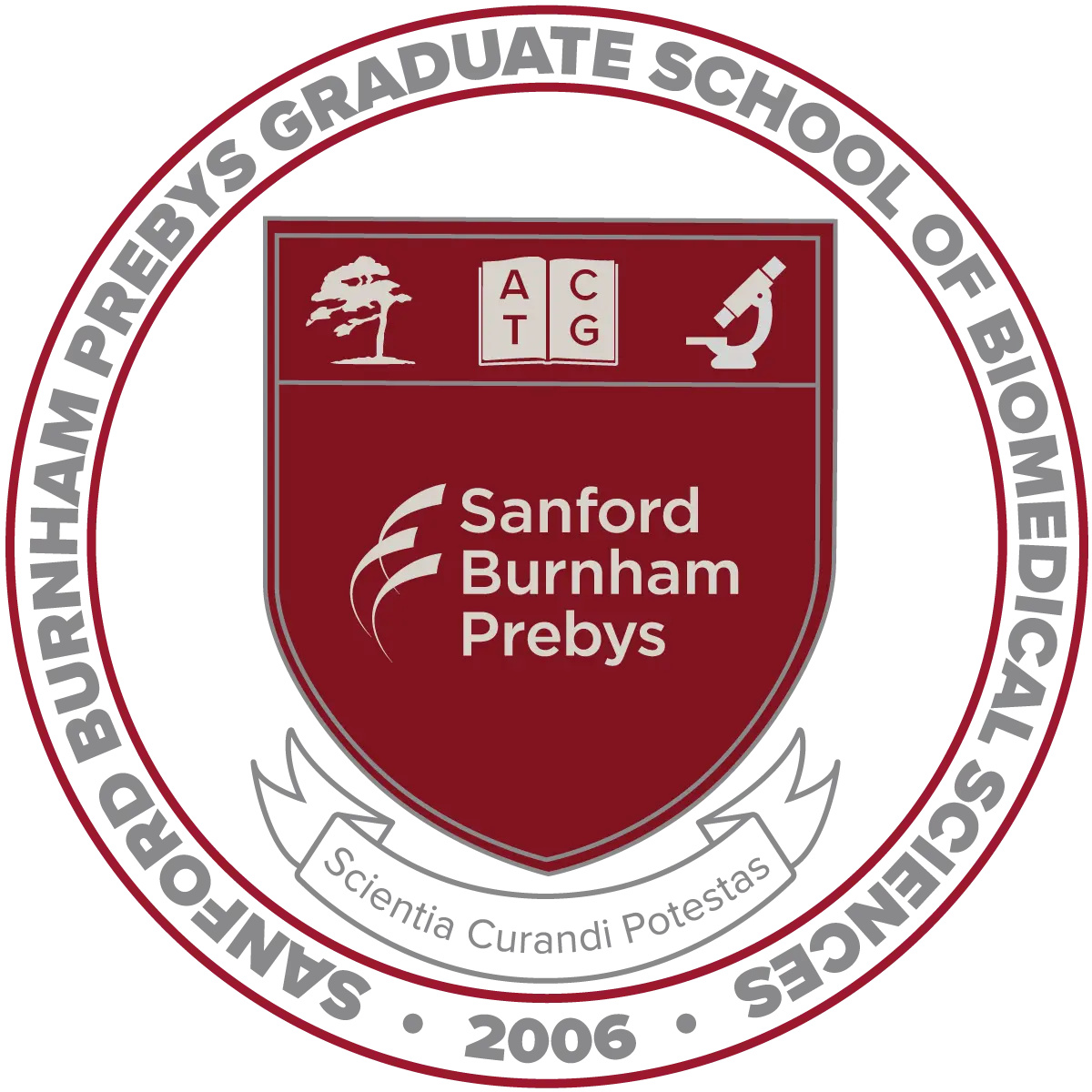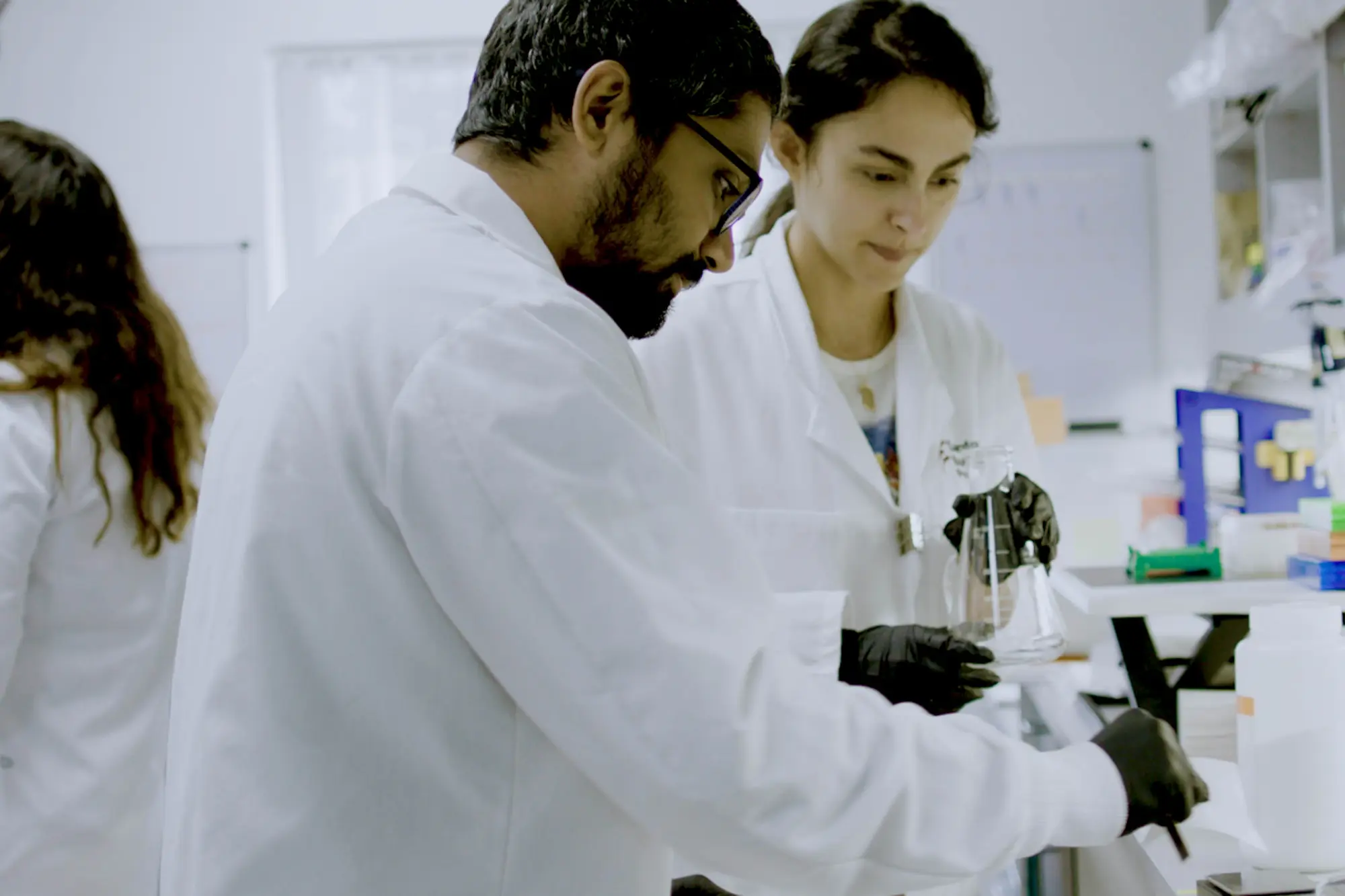The information below is intended to help prospective students and others evaluate the Program’s educational goals and student outcomes. We encourage prospective students to assess whether our PhD program aligns with their specific educational and scientific goals.
Program Learning Outcomes
A student graduating from GSBS will demonstrate the following:
- Strong foundational knowledge in the sciences, for example as measured by passing core courses, the Qualifying Examination, Pre-Thesis and Thesis Defense.
- High-quality biomedical research, for example as measured by publication of scientific manuscripts and completion of the written thesis.
- Innovative critical thinking, for example as measured by problem solving in the laboratory.
- Clear written communication in standard academic genres, for example as measured by annual writing requirements and course assignments.
- Excellent oral communication skills, for example as measured by presenting at Data Club and the GSBS Annual Retreat.
Course Learning Outcomes
All courses and tutorials have Course Learning Outcomes (CLO) that align with one or more of the Program Learning Outcomes (PLO). CLOs are listed on each course syllabus. Course syllabi are emailed to students in advance of class. All syllabi can be found in the Graduate School’s Student Access Folders. Faculty and deans assess student mastery of the CLOs through the course evaluation system.
Evidence of Student Learning
Mastery of the PLOs are assessed through coursework, including homework assignments, presentations and exams. Course rubrics are used to determine how well students are achieving the Program Learning Outcomes. The Associate Dean of Curriculum compiles an annual curriculum report that analyzes course outcomes. The Curriculum Committee convenes bi-annually to review the curriculum report and suggest modifications to the curriculum.
Where PLOs Are Met
I – Introduced
E – Expanded
M – Mastered
| PLO→ | 1 | 2 | 3 | 4 | 5 |
|---|---|---|---|---|---|
| Core Curriculum | |||||
| Molecules to Systems | I | I | I | I | |
| Ethics in Scientific Research | I | I | I | I | |
| Introductory Statistics | I | I | I | ||
| Modern Drug Discovery Technologies | E | I | I | E | I |
| Biological Databases as a Research Tool | I | I | I, E | ||
| Tutorials | I | I | I | ||
| Laboratory Research | E, M | E, M | I, E, M | I, E, M | I, E, M |
| Student Data Club | I, E, M* | I, E, M1 | I, E, M1 | ||
| First Year Writing Requirement | I | ||||
| Qualifying Exam | E | E | E | E | E |
| Third Year Writing Requirement | E | ||||
| Thesis Dissertation | M | M | M | M | M |
| Co-Curricular Activities | |||||
| Seminars & Workshops | I, E | E | I, E2 | I, E2 | |
| Scientific Meetings & Conferences | E | E | E | E | |
| Teaching & Mentoring | M | E | E | E | |
| Scientific Publication | E, M | E, M | E, M | ||
| Scientific Presentation | M | E, M1 | E, M1 | E, M | |
Retention and Graduation Data
Retention rates measure the percentage of students seeking a graduate degree who return to the institution to continue their studies the following fall. Graduation rate tracks the progress of students who began their studies as full-time, first-time PhDs to determine if they complete the program within 175% of average time-to-degree.
Institutional Research Office
The Institutional Research Office at GSBS is responsible for collecting and reporting program data, both in response to requests from internal departments and external organizations, with an additional goal of enhancing institutional effectiveness.
- Support of the Institute and GSBS missions and strategic initiatives.
- Collection, management and reporting of data to inform decision-making processes that support student success.
- Communicating data to prospective and current students, faculty, staff, the public, WSCUC, and state/federal agencies.
Outside Resources
Institutional Research Organizations
Regional and National Resources
Data Access and Privacy
The Bureau for Private Postsecondary Education protects students and consumers through the oversight of California’s private postsecondary educational institutions by conducting qualitative reviews of educational programs and operating standards, proactively combatting unlicensed activity, impartially resolving student and consumer complaints, and conducting outreach. An individual may contact the Bureau for Private Postsecondary Education for a review of a complaint.
bppe.ca.gov
Phone (916) 431-6924
Fax (916) 263-1897
2535 Capitol Oaks Drive, Suite 400
Sacramento, CA 95833

The Graduate School of Biomedical Sciences is accredited by the WASC Senior College & University Commission.

